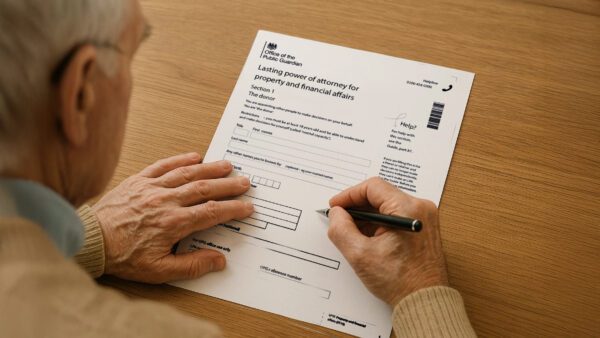Latest Posts

Struggling to Meet Innovator Founder Visa ILR Criteria in 3 Years? Here’s Your Way Out!
The Innovator Founder visa offers visionary entrepreneurs a fantastic opportunity to set up and grow a business in the UK. However, one of the biggest challenges applicants face is meeting 2 of 7 criteria for Indefinite Leave to Remain (ILR), which requires them to prove significant business growth, investment or customer traction.
If your business hasn’t progressed as expected, or if your endorsing body has withdrawn support – or if, as we have come across more often with legacy bodies who have simply ‘abandoned’ the applicant – you might feel stuck. But there are alternative pathways to secure your future in the UK. As an example, you may be able to combine certain visa categories to meet residence requirements.
Possible Pathways Forward
1. Extend Your Stay & Refine Your Strategy
A visa extension may provide the necessary solution for those nearing but not yet meeting ILR requirements, such as having invested £50,000 and created jobs but needing additional time to reach employment of five people.
If you are considering this option, it is important to prepare a significant business progression plan to present to the endorsing body for further endorsement. Alternatively, if your current endorsing body is unresponsive, you must transfer to one that is active. Additionally, you must strengthen your case by adapting your business model to better align with Home Office expectations. While there are technically no limits on extensions, each application must demonstrate clear progress towards meeting ILR criteria.
2. Switch to a Skilled Worker Visa
If your Innovator Founder route is no longer viable, switching to another visa category could be a smart backup plan. The Skilled Worker visa is always a good option to consider. This route offers flexibility, either through self-sponsorship if your UK business meets the necessary requirements, or by securing sponsorship from another UK employer.
Self-sponsoring applications undergo particularly rigorous Home Office scrutiny. Success depends on demonstrating the genuine necessity of your role within the business, ensuring that salary requirements are met, and maintaining clear separation between ownership and employment responsibilities.
3. Explore the Global Talent Visa
For exceptional individuals in technology, arts, or academia, the Global Talent visa offers an attractive alternative. This route can potentially lead to ILR in as little as three years by focusing on personal merit rather than business performance, while still allowing you to maintain your entrepreneurial activities.
The Importance of Professional Guidance
Successfully navigating these transitions, particularly in complex cases involving self-sponsorship, requires expert knowledge and experience.
Our firm has a proven track record of helping clients transition smoothly between visa categories, combining different visa types to optimise ILR timelines. We are also very familiar with the scenario of applicants who have been abandoned by their original endorsing bodies, we are positioned to provide you with support in this regard.
If you have encountered obstacles on your Innovator Founder journey, timely action and strategic planning can help you to preserve your UK aspirations. To receive a confidential assessment of your optimal pathway forward, please contact our specialist team. With the right strategy and guidance, your UK ambitions remain well within reach.
Please note: Immigration rules are subject to frequent changes. Professional advice should always be sought to address individual circumstances.
Read More
Contemplating Redundancies as a Consequence of the Budget?
This article was published in the January/February 2025 edition of London Business Matters.
The October 2024 Budget has seen businesses forced to weigh up the prospect of increasing employee costs following a rise in national insurance tax and paying higher minimum wages. A survey of recruiters by KPMG and the Recruitment and Employment Confederation (REC), reports that vacancies in the market have fallen at their fastest pace in four years. Simultaneously, we have seen an increase in enquiries from employers considering reducing headcount.
Contemplating Redundancies
If your business is contemplating reducing staff, it is important to demonstrate a genuine redundancy situation that meets the legal definition. This is:
- the business is closing or has already closed;
- there is a change in the types or number of roles needed to do certain work; or
- there is a change in location.
Once a genuine redundancy is identified, it is important to ensure that a fair process is followed to avoid a claim for unfair dismissal. Even for those employees who do not have the requisite 2 years’ service to bring such a claim, employers want to avoid any allegation of discrimination where, for example, it is suggested that prejudicial selection criteria was used to select and employee for redundancy.
As a minimum, a fair process requires a ‘genuine and meaningful’ consultation take place with those employees identified as ‘at risk’ to discuss the reasons for the proposed redundancies, the skills and experience needed going forward and the criteria used for selection. The consultation should include ways in which redundancy might be avoided, such as applications from staff to work flexibly on job shares or on reduced hours or, reducing or prohibiting non-contractual overtime. If any alternative options are not viable, then it is important to explain why this is the case. Employers should consider if any ‘suitable alternative work’ is available, engaging and inviting suggestions from the ‘at risk’ employees.
While there is no strict timeframe within which consultations should be carried out (except in redundancies of 20 or more employees which is beyond the scope of this article), these should take place over a sufficient period to demonstrate a fair and meaningful process.
Redundancies are difficult for everyone involved and a fair and transparent process can avoid ambiguity for employees and the potential of legal claims for employers.
To contact our Employment team, please complete the form below.
Read More
When It’s Too Late To Choose: The Cost Of Not Having A Lasting Power Of Attorney
Planning for the future is a vital part of ensuring personal affairs are managed effectively if capacity is lost.
A Lasting Power of Attorney (LPA) is a legal document that allows an individual (the donor) to appoint a trusted individual (or individuals) to make decisions on their behalf should they become unable to do so.
Failing to put in place an LPA can lead to complex, time-consuming, and costly consequences.
Types of LPA
There are two types of LPA in England and Wales:
Property and Financial Affairs LPA
This covers decisions such as managing bank accounts, paying bills, and selling property.
Health and Welfare LPA
This relates to care needs, medical treatment, and life-sustaining decisions.
Both must be made whilst the donor has mental capacity and registered with the Office of the Public Guardian to be valid.
What does it mean to lose capacity?
Mental capacity refers to the ability to make a specific decision at the time the decision needs to be made. This includes understanding information relevant to decision making, retaining it long enough to weigh up options, and communicating a choice.
Capacity can be lost gradually, such as through dementia, or suddenly, due to a stroke or serious injury. Importantly, capacity can fluctuate, and it may be that an individual might lack capacity at a particular point in time but regain it later.
As well as time-specific, capacity is also decision-specific, and a person may lack the capacity to make one kind of decision, but retain capacity to make others.
Without the necessary capacity, you may be unable to manage your financial affairs, make decisions about your health and welfare, or even handle day-to-day matters.
Critically, once capacity is lost, it is too late to put an LPA in place.
What happens if you lose capacity without an LPA?
If you lose mental capacity and do not have an LPA in place, no one automatically has the legal authority to manage your property or finances, and only the healthcare professionals treating you will be able to make health or welfare decisions on your behalf, acting in what they believe to be your best interest. In this situation the Court of Protection must be involved, and someone (often a loved one) must apply for a deputyship order to act on your behalf. This process can be:
Lengthy
The application process typically takes 6-12 months, and potentially longer if contested or delayed. During this time, no one can legally manage your finances or make decisions, which can affect bill payments, care arrangements, or property sales.
Costly
Costs include application fees, legal fees, medical assessment costs, and ongoing annual fees for example. A deputyship is much more time consuming and costly compared to making an LPA.
Restrictive
A deputy’s powers, once granted, are limited, and they are subject to ongoing court oversight.
Stressful
Applying to the Court of Protection for a deputyship order is a process that can be slow, expensive, and emotionally taxing, especially if there is a disagreement over who should apply or how decisions should be made. The lack of clarity and legal authority can cause confusion, disputes among family members, and emotional distress at an already difficult time.
Why set up an LPA?
An LPA is a legal document that allows you to appoint one or more trusted individuals (your attorneys) to make decisions on your behalf if you lose capacity. Key benefits include:
Control
You choose who acts for you and you can set out clear instructions or preferences.
Speed and simplicity
Attorneys can either act immediately once the LPA is registered (Property and Financial Affairs LPA only), or once you’ve lost capacity.
Peace of mind
Having a valid LPA in place can avoid the cost, delay, and complexity of court proceedings.
Respect for your wishes
LPAs can be tailored to your wishes and ensures that future decisions made by your Attorneys reflect your values and preferences.
A vital safeguard for everyone
An LPA is a vital part of lifetime planning, just like a Will. Without it, your finances, health, and welfare decisions could fall into the hands of the Court rather than trusted individuals of your choosing.
To discuss your requirements and find out how we can help you, please get in touch.
Read More